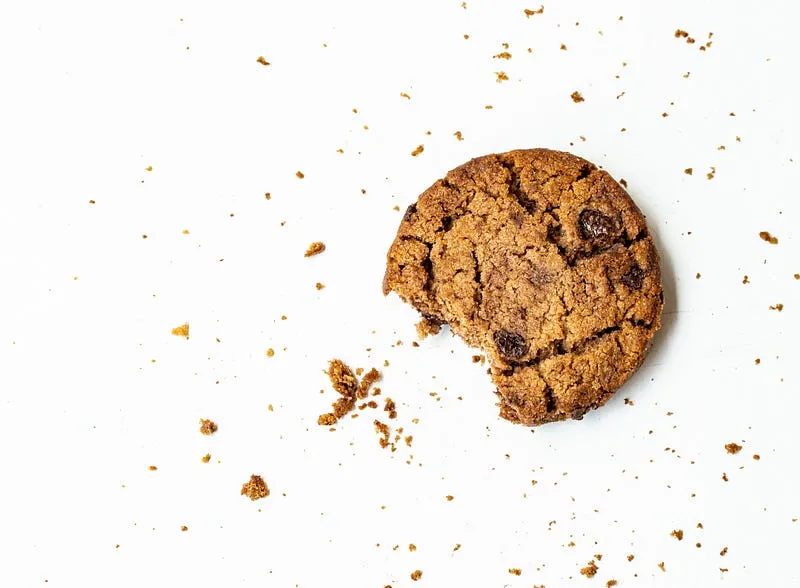New Month, New You
The New Month Resolution: A resolution that sticks.

“What is one of the best or most worthwhile investments you’ve ever made?” — “In 2016, I started doing New Month Resolutions.” - Ryan Shea in Tim Ferriss’ book “Tribe of Mentors”
I’m not a big fan of new year’s resolutions. I believe they’re too audacious to ever get done. Simply setting a goal without designing a system around it might work for a short span of time, but not for a whole year.
Laying in bed at around 22:57 on a cloudy day in April, close to drifting away, I was reading a few chapters in “Tribe of Mentors”. When I stumbled upon the above quote, I was wide awake again.
A new month resolution? That’s exactly what I’ve been looking for.
Psychologically, there is a big difference between “never” and “later”. This is why most diets don’t work.
A low-carb diet tells you to avoid any carbs, particularly from starches, sugars, and alcohol. Your brain understands: you can NEVER EVER have carbs again.
So every time you crave carbs, you have to summon willpower to resist your urge.
After a while, that willpower is depleted. You decide to give in to your urges and quite the diet. And that’s when you eat a whole cheesecake, drink 12 beers, and stuff yourself with two cheesy pizzas.
Good diets, on the other hand, include “cheat days”, in which you don’t have to adhere to your restrictions. Now, your brain understands: you can’t have this right now, but on Saturday.
And that’s when you eat a whole cheesecake, drink 12 beers, and stuff yourself with two cheesy pizzas.
The only difference is that after doing so, you go back to your diet. You established a sustainable system by acknowledging that you are human and have cravings that at some point need to be satisfied.
How does this relate to New Month Resolutions?
First, let’s look at how a New Month Resolution works: set a goal, and stick with it for one month. Quite simple.
The striking difference to a New Year’s Resolution is that instead of committing to doing or not doing something for a year (which your brain understands as “forever” and “never again” correspondingly), you just commit to a month.
Before you start, you can already see the light at the end of the tunnel. A month? C’mon man, you can do that.

Systems, not Goals
When setting a new month’s resolution, there are two ways to approach it: doing something, or not doing something. In his blog post from 2017, Ryan Shea calls these “behavior months” and “elimination months”.
In a behavior month, you try to do something every day. For example: “My New Month Resolution is to meditate for 10 minutes every day.”
In an elimination month, you try not to do something for a whole month. For example: “My New Month Resolution is to not drink alcohol for a month.”
Both of these types are systems, not goals. “By the end of the month, I want to weigh 5 kg less” wouldn’t be a good resolution, because it does not give you a system. Even if you manage to somehow lose 5 kg, but you keep your same unhealthy habits, then you will put those on again soon.
A better way to phrase this would be: “My New Month Resolution is to do a 30 minute high-intensity interval workout every day Monday to Friday.”
This is a system. While you might not lose 5 kg initially, you will do so more sustainably. You establish a system that allows you to be a fitter, healthier, better looking human.
This is what the New Month Resolution is all about: building or breaking habits.
In a behavior month, you build a habit.
In an elimination month, you break a habit.
And by doing it one month at a time, you can attempt to build or break up to 12 habits a year.
The Mental Toolbox
Habits are part of your “mental toolbox”. Each of us wants to achieve something different, and your habits are part of the tools that can get you there.
For instance, I want to be a great business builder and athlete. Both a good business builder and a good athlete have a few common traits:
- Their bodies and minds are healthy
- They are resilient to stress
- They are knowledgeable about what they do
The tools I use to foster those traits are:
- Daily meditation and journaling
- Daily yoga sessions
- 5–6 training sessions per week (makes your body healthy, but is mostly owed to the athlete inside of me)
- Going to sleep at the same time of the day
- Eating a high-protein, medium-carb diet with lots of calories (3,500+ per day)
But if your goals change, you might want to change your habits. For instance, if I wanted to lose weight, I would scratch the high-calorie diet and instead move to the slow-carb diet or intermittent fasting.
The bigger your mental toolbox becomes, the better you will be able to adapt to new situations. Habits are a key component of that toolbox.
Experiment, experiment, experiment
A New Month Resolution is the perfect experimental setting. You just change one thing about your life, the rest remains normal. The one thing you change is your “independent variable”, the rest are “dependent variables”.
In statistics, when you change the independent variable, the dependent variables change too — depending on the impact of the independent variable.
In real life, by changing one thing, you can discover other correlations that you might not have expected.
My first new month’s resolution was to quit Instagram for a month:

The most surprising insight was that by quitting to look at Instagram (and only that), my REM and deep sleep increased by 20 minutes per night. This might be correlation, not causality, but I do believe that looking at highly engaging and arousing content right before going to sleep has an impact on your sleep quality.
Now, I’m back on Instagram, but more consciously: I track my time spent looking at the app, get a notification when I spent more than 20 minutes on a day, and do not open it before going to bed anymore. Experimenting allowed me to build a system.
With each new month’s resolution, you might discover things that you wouldn’t have expected. Hey, who knows, maybe going vegan actually helps with building muscle? Does not drinking alcohol increase the amount of dreams you have? Do 20 minutes of sunlight exposure right after waking up increase your sex drive?
I have no idea. But now, I have a tool that allows me to experiment with all these things.

Take Action
Let’s get to work. Off the top of my head, here are a few things you could try as your first New Month Resolution:
Behavior months
- Journaling every day
- Meditating for 10 minutes every day
- Doing Yoga for 10 minutes every day
- Writing every day (this is what I’m currently doing and how this post originated)
- Waking up at 06:15 am every day
- Exposing yourself to sunlight (even when it’s cloudy) for 20 minutes right after waking up
- Reading for 15 minutes every day
- Sending an email to your email list with awesome content you’ve found every day (oh shit this might actually be happening — wanna be part of it?)
Elimination months
- Not taking the elevator for a month
- Not eating any animal products (or just meat) for a whole month, i.e. going vegan / vegetarian
- Not looking at social media
- Not drinking alcohol for a month (but I’m sure as hell not going to do that, I’d rather go vegan)
- Not looking at screens one hour before bedtime
- Not watching any Netflix or movies
I will keep adding to this as I keep trying new month resolutions, but this should be a good start.
Give it a shot. It might just change your life.
And when the next year comes around, don’t make a new year’s resolution.
Make 12 new month’s resolutions instead.
Thanks for reading! If you like what you read, feel free to subscribe to my newsletter. On a not-so-regular basis, I send out emails with cool stuff I’ve read or written, and other inspiring stories I come across. Subscribe here.
Dominik Nitsch Newsletter
Join the newsletter to receive the latest updates in your inbox.


